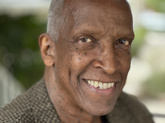As The Notebook's Older Allie, Maryann Plunkett Delivers a Tribute to Her Mother and a 'Love Story for the Elders'
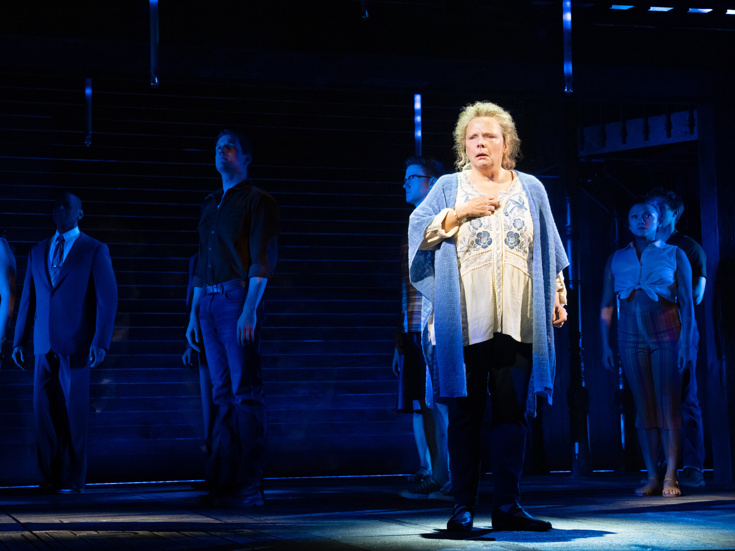
(Photo: Julieta Cervantes)
The last time Maryann Plunkett starred in a Broadway musical, she won the 1987 Best Actress Tony Award, singing with a Cockney accent and dancing the “Lambeth Walk” in Me and My Girl. Almost 40 years later, Plunkett has returned to the musical stage as Older Allie in Ingrid Michaelson and Bekah Brunstetter’s adaptation of the mega-selling Nicholas Sparks novel The Notebook. It’s a savvy piece of casting, because Plunkett excels in commanding an audience’s attention with quiet simplicity—a crucial requirement for playing a once-vibrant artist whose memories have been dimmed by dementia.
In the past decade, Plunkett and her actor husband, Jay O. Sanders, anchored a dozen slice-of-family-life plays by Richard Nelson tied to real-life events including the 2012 and 2016 presidential elections. She recently took home an Obie Award for playing a terminally ill woman in the 2023 drama Deep Blue Sound, a performance hailed as “transformative, fearless and empathetic.” In short, Maryann Plunkett is having a great year, and the warm and friendly actress is savoring every moment.
You have such a juicy role in The Notebook, even though Older Allie appears at first simply to be an observer.
Oh, I love this play! I love this company, I love the music, I love the vision, I’ve loved the process of developing it—I’m just so honored to be part of it. It’s a universal story, but it’s told very specifically, and it touches on things so many people are dealing with in their families. My mother lived with dementia for a number of years, so it’s very personal for me. It’s my little tribute to my own mom.
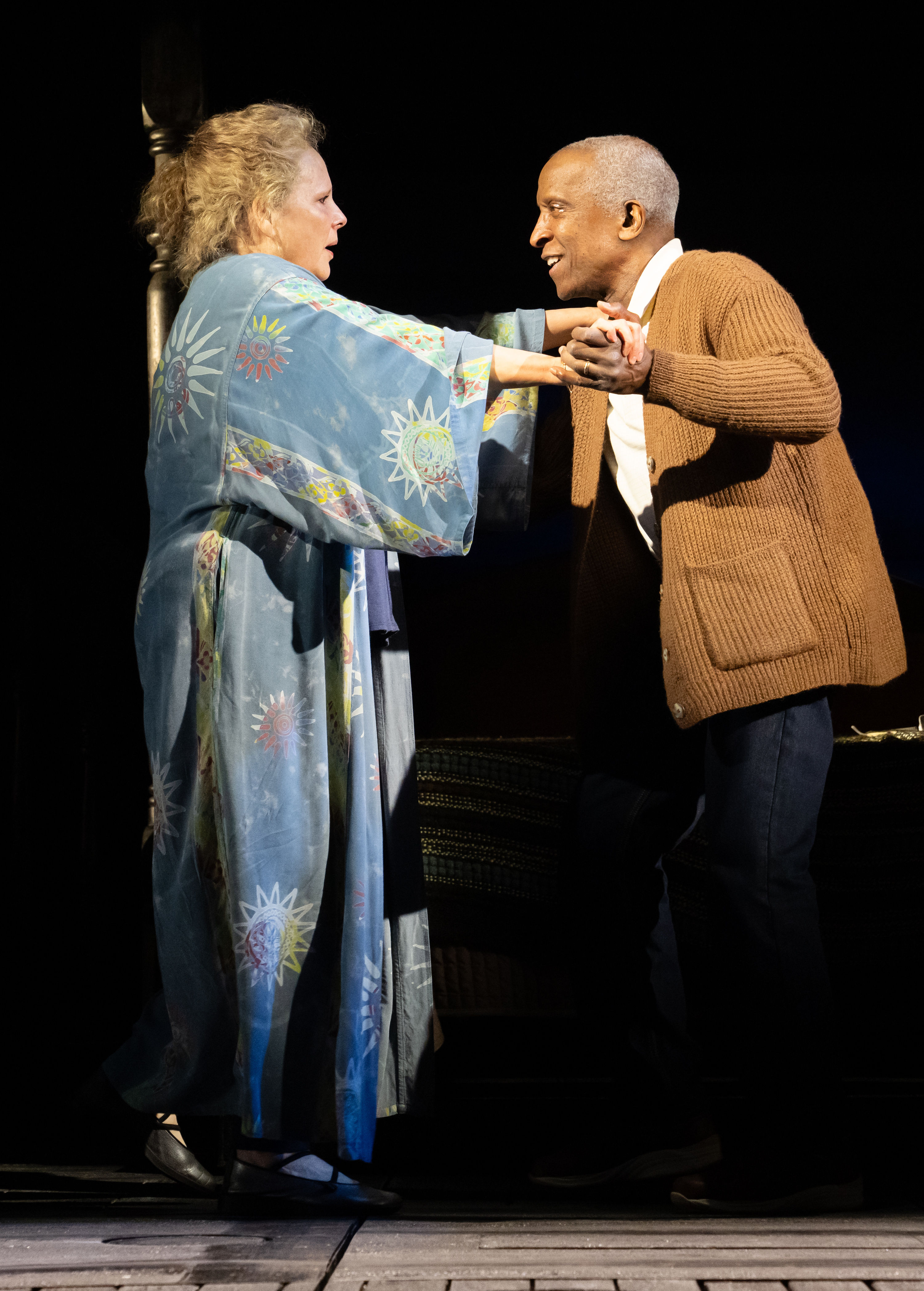
(Photo: Julieta Cervantes)
Did your personal history help in creating the character?
It lets me feel my mother’s presence, which is a lovely thing. My mom was active until she died; she never sat passively. Her autonomy was taken away, and it could make her angry at times. My Allie lashes out because she’s frustrated at being told what to do. She knows she is searching for something, but she doesn’t understand what. And yet she feels safe with Noah. I think it’s a love story for the elders: Allie falls in love with the man she’s always been in love with, and eventually she does realize who he is, if only briefly.
You and Dorian Harewood [as Older Noah] spend chunks of time watching your characters’ younger selves. What’s that like?
The other actors are so glorious, and the unfolding of the story is so beautiful, how could we ever get tired of watching them? There’s the innocence of young love, the opening up of that, and then the pain Allie and Noah experience in their early 30s. I get so involved, I sometimes feel as though Dorian is actually reading the story from the book he is holding! We don’t disappear during the numbers; we’re all moving the story forward together, so it’s a wonderful adventure.
[Composer] Ingrid Michaelson and [book writer] Bekah Brunstetter seem to have enlarged the story and given it extra depth.
A lot of people have said that. We go from speaking to singing, and Ingrid’s magnificent music and lyrics take the story forward in a way that feels necessary. There’s no excess in Bekah’s book, and she digs very, very deeply into every character. I think she did a brilliant job.
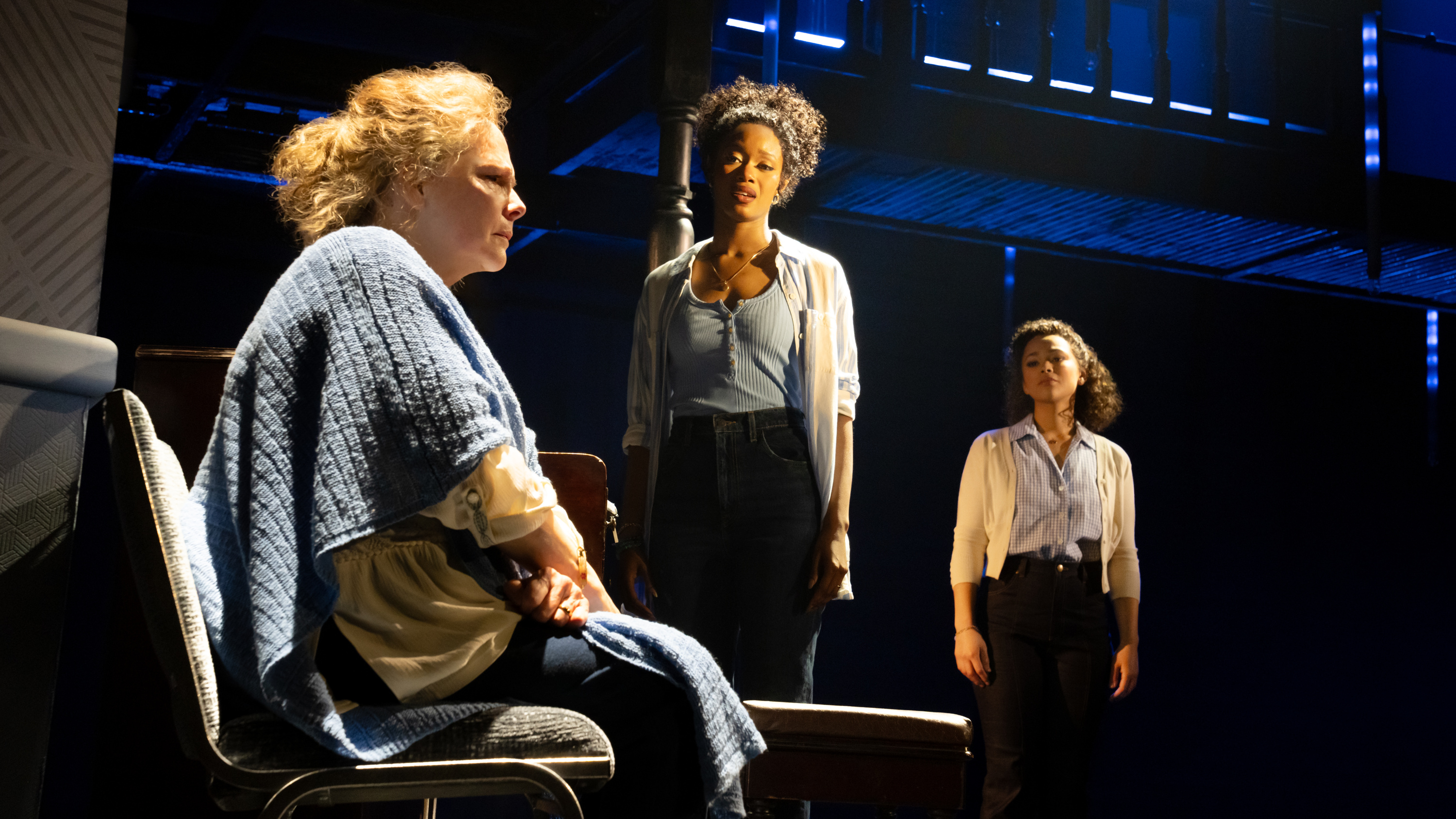
(Photo: Julieta Cervantes)
What’s it like to share your role with Jordan Tyson and Joy Woods?
I watch them and realize that I used to be them! [laughs] It’s so strange, because I think, “I’m just me,” and yet I’m 71, the same age as Older Allie. What?! There’s a melancholy [element], I suppose, but I’m so proud and happy for them. They have so much ahead of them, and I take great joy in watching them grow and bloom.
"The only important colors in the show are blue for Allie and brown for Noah."
–Maryann Plunkett
The Notebook boasts what co-director Schele Williams has called “color-conscious” casting, something that probably wouldn’t have been done on Broadway 30 years ago. Did those choices make sense to you?
The only important colors in the show are blue for Allie and brown for Noah. They’re distinct color palettes for the couples. As for the rest, a long time ago, when [co-director] Michael Greif was talking about his vision, he said that there are thousands of Noahs and Allies who can see themselves in this story. I look at [the younger actresses] as characters in the story I’m hearing, and it doesn’t have to match up with someone who looks like a younger version of me.
Why do you think the various iterations of The Notebook have been so popular for so long?
Ultimately, people are looking for love—to have a partner with whom to share a life, whether it’s a marriage, a friendship, or whatever. And at the end of life, there is loss, something we will all go through. Many years ago, [psychiatrist] Elisabeth Kübler-Ross wrote a book called To Live Until We Say Goodbye, and I think about that a lot. Even though Allie is not able to understand things, she is living as fiercely as she possibly can.
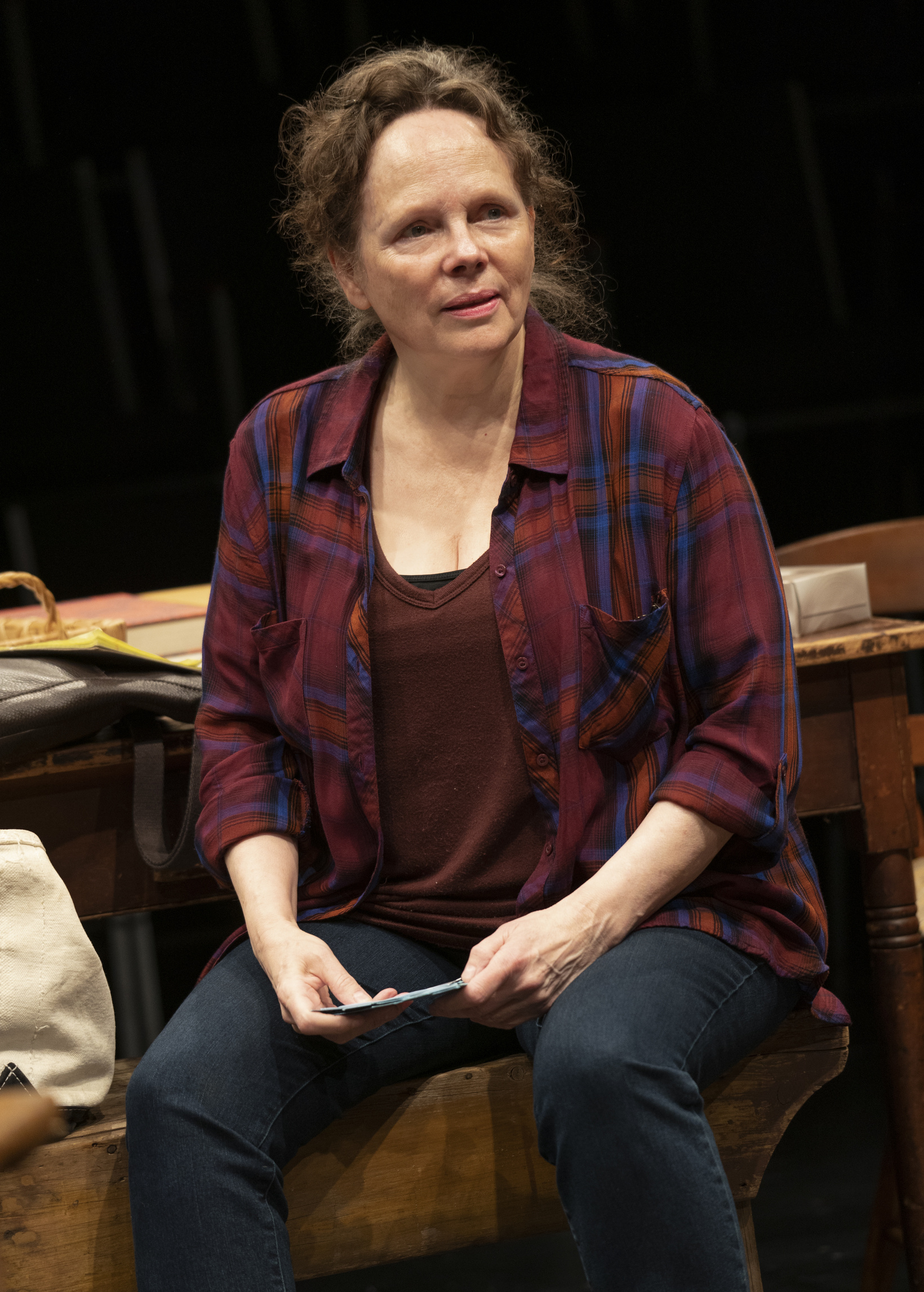
(Photo: Joan Marcus)
Are your young co-stars aware that you won a Tony for Best Actress in a Musical?
A million years ago!
Why did it take so long for you to sing again on Broadway?
I took a big chunk of time off when I had my son [actor Jamie Sanders], who just turned 30. And the Richard Nelson plays were a huge part of our lives for a dozen years.
It must be satisfying for you and Jay that, after creating a life in the theater, your son wanted to follow in your footsteps.
As opposed to going, “Nooo! Never!” [laughs] Our son is a beautiful actor; he just did a workshop of something at the Public Theater. But it’s much harder for young people now. We were very fortunate to have had those years with Richard’s plays.
Well, you just won an Obie, and now you’re opening on Broadway in The Notebook. It’s time to celebrate.
The Obie really touched me because I love working on new plays. Again, it was an end-of-life role, because that’s the age I’m at now. But great material comes out of that, so it’s fine with me. I feel like the luckiest person in the world.

